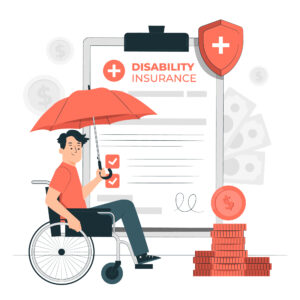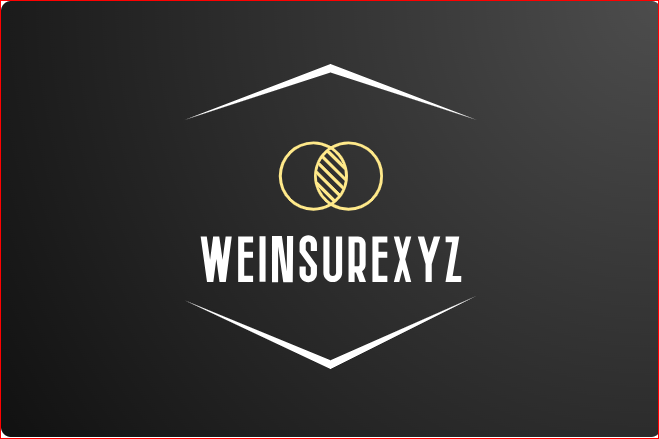General disability insurance questions
General disability insurance is priced according to the elimination period, benefit period, age, occupational class, and benefit amount. It can aid employees by providing a valuable benefit of disability protection. It is available through an employer or from private insurers. It is poorly understood, but as vital a coverage as life insurance. General disability insurance is a decisive type of insurance,
When Am I Considered Disabled?
 The definition of disability will vary depending on the terms of your own individual policy. Some policies pay when you’re unable to perform the duties of your own occupation, while others pay only if you’re unable to perform in any job suitable for you based on your training, education and experience. Some general disability insurance policies and plans may use an own-occupation definition for a period of time (e.g., two or three years), after which an any-occupation definition is applied. Other general disability insurance policies and plans require that you not be gainfully employed while you’re collecting benefits.
The definition of disability will vary depending on the terms of your own individual policy. Some policies pay when you’re unable to perform the duties of your own occupation, while others pay only if you’re unable to perform in any job suitable for you based on your training, education and experience. Some general disability insurance policies and plans may use an own-occupation definition for a period of time (e.g., two or three years), after which an any-occupation definition is applied. Other general disability insurance policies and plans require that you not be gainfully employed while you’re collecting benefits.
There are policies and plans that will pay you a portion of your monthly general disability insurance benefit if you have lost a part of your income due to a disability—usually referred to as a residual or partial disability benefit. Additionally, some policies and plans include a rehabilitation benefit that pays some or all of the cost of occupational rehabilitation approved by the insurer.
Keep in mind that many general disability insurance policies and plans will not cover disabilities caused by suicide attempts, drug abuse, war, or attempts to commit a crime. Disabilities due to pre-existing conditions are also frequently excluded.
When Will Benefits Start?
Benefits will begin to accrue shortly after the end of the waiting period. Most individual disability policies and group plans have a waiting period (e.g., 90 days, 180 days). When you choose individual general disability insurance, consider how long you can manage without a paycheck. If you have significant savings, you may be willing to choose a longer waiting period. The longer the waiting period, the lower the premium. Under most group plans, generally the employer selects the waiting period.
How Long Will Benefits Be Paid?
With individual disability income policies, you can select the maximum time your benefits will be paid, subject to the insurer’s underwriting guidelines. With most group disability plans, the employer selects the maximum duration of benefits. The most frequently offered benefit periods are two years, five years, or to age 65. Policies with shorter benefit periods will have lower premiums.
How Much Disability Income Insurance Do I Need?
It’s generally recommended that disability coverage be chosen to replace 60 to 70 percent of your total taxable earnings. If you purchase general disability insurance with after-tax dollars, your benefits will usually be income tax free. If you have group disability insurance provided by your employer, however, benefits will generally be taxable.
Small business owners have special concerns and should consider obtaining professional advice about policy options that protect a business if the owner becomes disabled (e.g., overhead expense policies).
To estimate the benefit amount you would need if you became disabled, ask yourself how much monthly income would cover your living expenses. Would these expenses go up or down if you became disabled? These expenses must be carefully considered. Work-related expenses may go down. Medical expenses may increase. Education expenses may increase as you retrain. Some insurance policies may have premium waivers. By considering all these factors, you should be able to come up with an appropriate amount.
To get an estimate of how much disability income insurance you would need to maintain your current standard of living, complete the following steps using the “Disability Insurance Planning Worksheet”.
Download the Disability Income Insurance Planning Worksheet.
What Additional Benefits are Available?
Social Security. Social Security disability benefits may be available to eligible individuals prior to age 65, depending on your income and how long you have been paying Social Security taxes. Generally, if you become disabled before reaching age 65 and you have a steady work history, you may qualify for monthly Social Security disability benefits. The payment may be equal to the amount you would get if you had reached age 62 at the time the disability occurred. Social Security disability benefits generally increase each year to keep pace with inflation.
According to current Social Security guidelines, if you become disabled and you’ve been receiving a reduced retirement benefit or other disability benefit, your disability benefit may be reduced. Social Security disability benefits will generally stop when you reach age 65, and retirement benefits will begin. (Disability benefits will also stop in other instances not discussed in this booklet.)
The Social Security Administration has very strict definitions of disability. You generally must be unable to engage in substantial gainful activity by reason of a physical or mental impairment that can be expected to result in death or last for at least 12 months. Social Security disability benefits are not intended for temporary conditions. You should also note that Social Security’s disability rules are different from those of other government or private programs. So while you may qualify for disability benefits under another program, you are not automatically eligible for Social Security disability benefits. There is also a 5-month waiting period for benefits. If a disabled worker dies before applying for benefits, the family can do so within three months of the worker’s death. Benefit payments may be subject to federal income tax.
If you become disabled, call or visit your local Social Security office as soon as possible to determine your eligibility for this benefit, your spouse’s eligibility, and that of any dependent children. You can also determine the amount of your entitlement and the formula used for determining this amount. Don’t just report your disability; file an application at your local Social Security office. If the Social Security Administration turns you down, you can appeal. For more information, call the Social Security Administration toll-free at 800-772-1213. To expedite the application process, have a summary of where you’ve worked in the last 15 years and the kind of work you did.
How Can I Obtain General Disability Insurance Coverage?
There are several ways to obtain disability income coverage. Rates vary according to your age, health, occupation, and the policy features you choose. Here are some smart shopping tips with respect to an individual disability income insurance policy:
Compare policies from at least three different insurers. Compare price, the definition of disability, and whether the policy is non-cancelable or guaranteed renewable.
Buy at young age. Insurance generally gets more expensive as you age. Also, as you get older, you may develop health problems that could preclude coverage.
Buy a non-cancelable policy.If you have this type of policy, the company cannot change your premiums or cancel your coverage as long as you pay your premiums on time. In addition, if you purchase your policy at a younger age, you’ll be able to lock in a lower premium.
Increase the waiting period. Longer waiting periods will reduce your premiums. Be sure you have enough savings to cover a longer waiting period and/or will receive extended sick pay through your employer. If you’re trying to trim the cost of a policy, having benefits payable through age 65 is generally more important than a short waiting period.
Choose a financially strong insurer. Independent agencies such as Standard & Poor’s and Moody’s rate the financial health of insurance companies.
What if I Need to File a General Disability Insurance Claim?
You will need written proof of your disability to file a claim. Your insurer may also require medical records from your doctors concerning the details of your disability. Your insurer may also want you examined at their cost.
Your benefits will begin accumulating after you have been disabled for the predetermined waiting period. If you return to work before the waiting period is over, you most likely will receive no benefits. Note that premiums are usually waived during your disability.
If you find yourself unable to work someday, you’ll need to concentrate all your energy on getting better. General disability insurance can help you do that by alleviating financial worries so you can focus on your health and your future.












